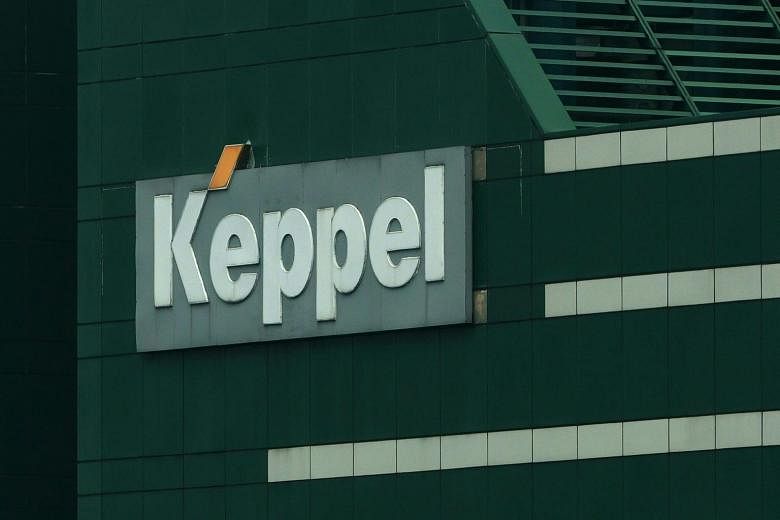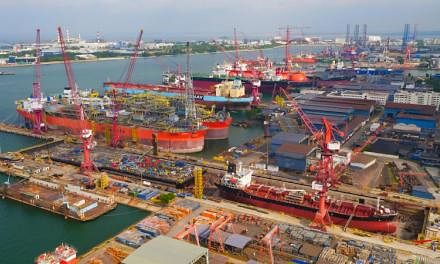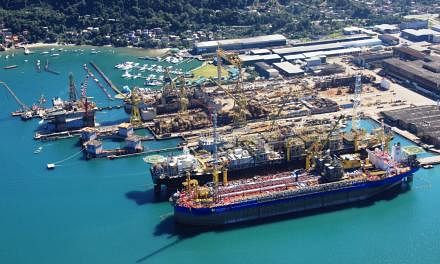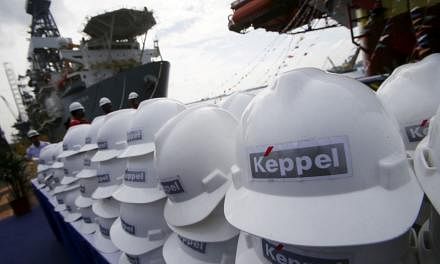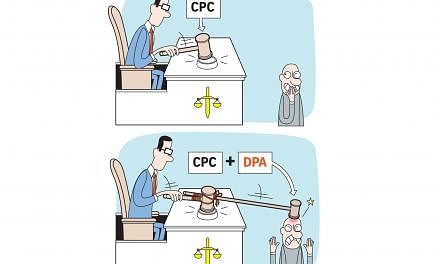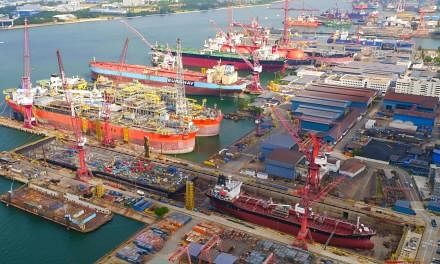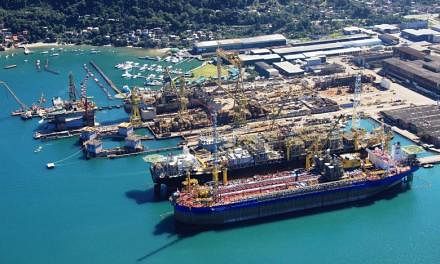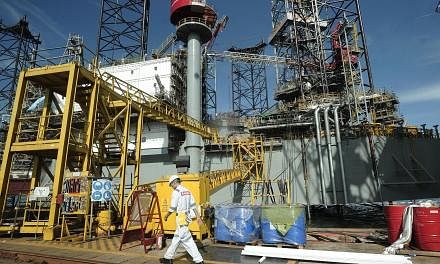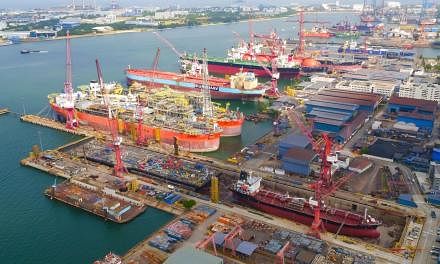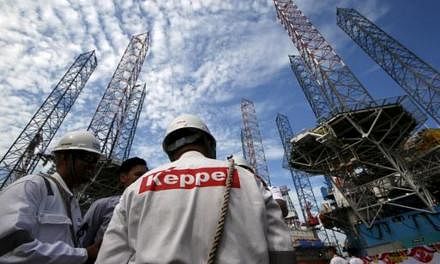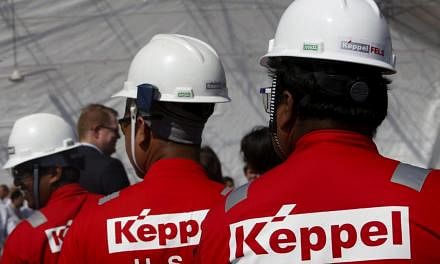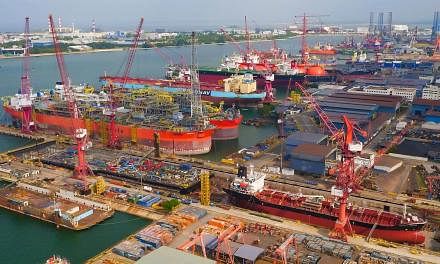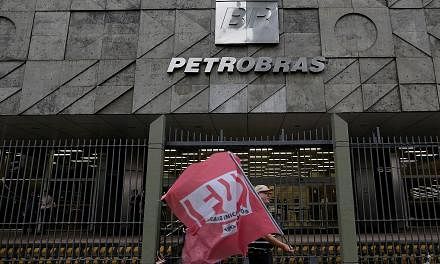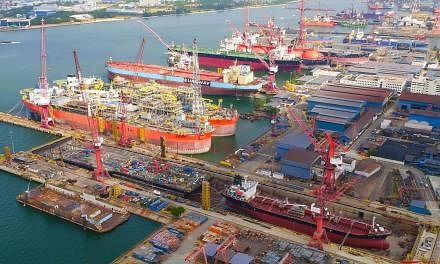SINGAPORE (THE BUSINESS TIMES) - Shares in Keppel Corporation bucked the market trend on Friday (Jan 26) even after the conglomerate posted its first-ever quarterly loss on the back of S$619 million in graft fines and related costs.
Clearly investors have priced in the hefty fines that unit Keppel Offshore and Marine (KOM) agreed to pay over its Brazil graft payments.
But what of the group's offshore and marine (O&M) contract provisions?
In its fourth-quarter financial results announced last Thursday, Keppel Corp booked another S$81 million provision for losses made on its Sete Brasil rig-building projects. That is on top of a S$230 million provision it last extended to these projects in the fourth quarter of the 2015 financial year.
Almost six years after Sete Brasil awarded US$10 billion worth of contracts to KOM and Sembcorp Marine (SembMarine), the other Singapore O&M heavyweight, the delivery of these rigs is still contingent on the progress of Sete Brasil's ongoing financial restructuring.
So far, Keppel Corp has been reviewing its exposure to the Sete Brasil contracts on a quarterly basis because the situation with Sete Brasil, as chief executive Loh Chin Hua puts it, has been "fluid".
If that is indeed the case, why has it taken two years for Keppel Corp to disclose the widening of its Sete Brasil provision by another S$81 million?
While it's heartening that Keppel had reviewed its "assumptions on rig day rates and exchange rates" when sizing up the Sete Brasil provision, the question remains: Is a quarterly review of Keppel's exposure to Sete Brasil frequent enough, considering that Sete Brasil is a named party in the corruption probe that led to KOM's US$422 million fines?
The Brazil market, too, is not improving any time soon. As industry veteran Ian Craven of Icarus Consulting suggests, the downside risks overwhelm the upside pertaining to offshore drilling contracting in Brazil. "Petrobras (the end client for the Sete Brasil rigs placed with KOM and SembMarine) is still laying off rigs and not contracting new ones."
Statoil's award of an ultra deep-water drilling contract to Seadrill last July did buoy hopes of an end to the drought in Brazil rig contracting. But Mr Craven pointed out that the said Seadrill contract attracted a day rate of US$206,000, far from the peak of over US$600,000 before the market crashed in 2014.
In fact, IHS Markit's APAC lead for yards and fabrication Ang Dingli noted that rig day rates - both for ultra deep-water and shallow water rigs - had fallen at the start of 2017 before stabilising in the following 12 months. Mr Ang believes they are likely to stay low throughout 2018.
"Although the downside risk is extremely limited, upside potential is limited as well," Mr Ang said.
Still on provisions, Keppel confirmed at its Q4 results briefing that it has yet to provide for the shallow-water jack-up rigs on its order book. Is this prudent given that jack-up day rates are expected to remain depressed? IHS Markit's report in December indicated that jack-up day rates were fixed at over 50 per cent off pre-crash levels.
The answer may lie in KOM's ongoing negotiations with Norway's Borr Drilling for the sale and resale of some of these shallow-water jack-ups. The Business Times has learnt that KOM held back from taking an offer from Borr earlier as the latter had not matched KOM's asking price of US$150 million to US$160 million per rig. Those prices are expected to cap impairments and write-offs to within an acceptable threshold for KOM.
Borr is said to have also been shopping around for rigs in China. Mr Craven said that one upside for KOM is that Chinese rig-builders are currently not prepared to dive to US$160 million per rig.
Yet, he also noted that "there are few Borrs around with the financial muscle to buy in bulk" with the offshore drilling market still facing vast overcapacity. Equity analysts have pointed out that nine to 10 jack-ups on KOM's order book are being considered for resale, so whether Borr will take all the rigs is still a question. And even if a deal with Borr does materialise, how far KOM can walk away without taking any writeoffs also depends on the extent to which the original clients for these rig-building contracts are willing to absorb any resulting losses, observers said.
Given these facts and the possibility that the offshore drilling market could stay in the doldrums through 2018, KOM's rig-building order book will continue to prove troublesome for Keppel Corp in the absence of a "kitchen sinking" move - the practice of taking in all the bad news at one go to accentuate any subsequent upturn.

